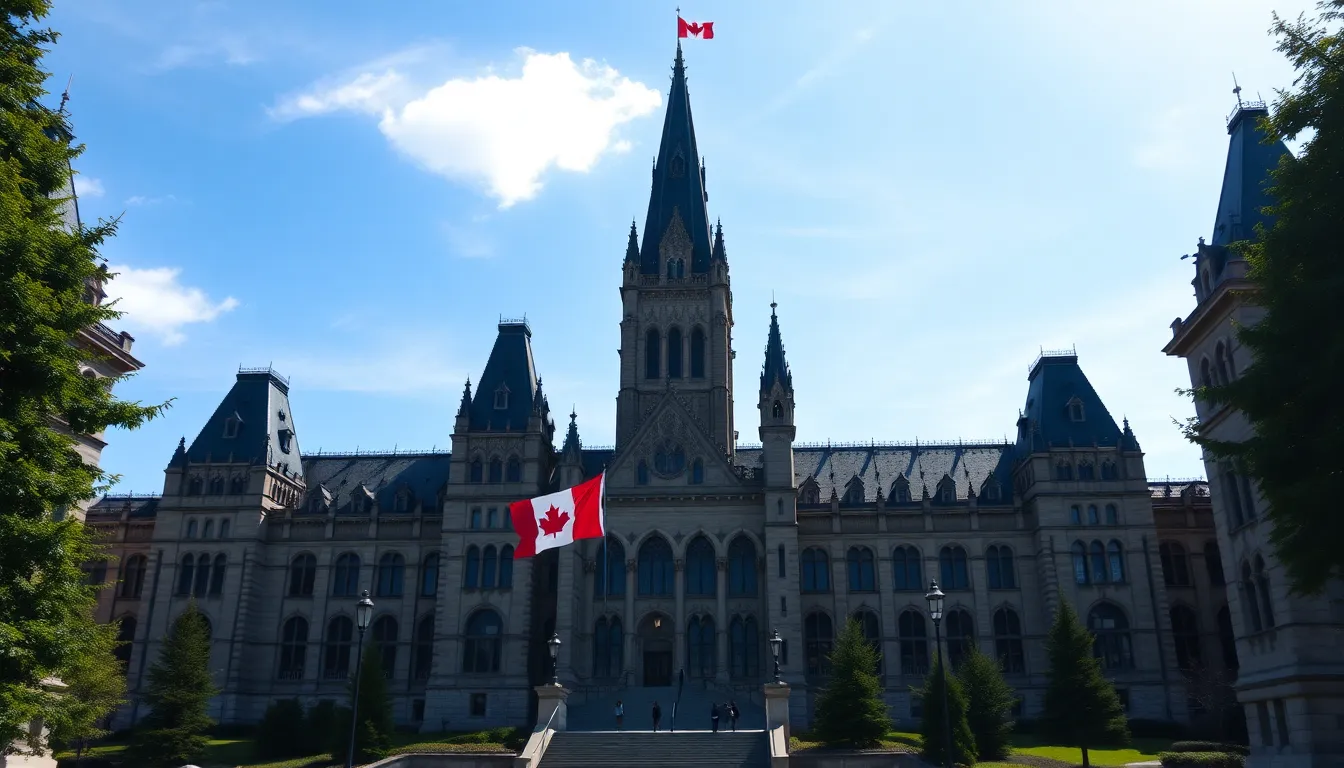The relationship between Canada and the United Kingdom often sparks curiosity. Many people wonder if Canada is still part of the UK or if it has fully established its independence. This question touches on history, governance, and cultural ties that bind these two nations together.
Canada, a vast and diverse country, has a unique status as a member of the Commonwealth realm. While it shares a monarch with the UK, it operates as a fully sovereign nation with its own government and laws. Understanding this relationship helps clarify Canada’s identity and its position on the world stage.
Table of Contents
ToggleHistorical Background
Canada’s history with the United Kingdom shapes its current status as an independent nation. Understanding this background provides clarity on Canada’s relationship with the UK.
The British Colonial Era
The British Colonial Era began in the 16th century with the establishment of fishing and trading posts. Britain gradually expanded its influence through exploration, military ventures, and treaties. The 1763 Treaty of Paris marked the end of the Seven Years’ War, granting Britain control over Canada. In 1867, the British North America Act created the Dominion of Canada, uniting Ontario, Quebec, New Brunswick, and Nova Scotia under a federal government, while Britain retained oversight of foreign policy.
Independence Movements
Independence movements in Canada progressed slowly but consistently. The Statute of Westminster in 1931 granted Canada legislative independence, allowing it to make its own laws without British approval. During World War II, Canada further asserted its autonomy by making independent military decisions. The 1982 Constitution Act formally patriated Canada’s constitution, eliminating the requirement for British parliamentary approval on constitutional amendments.
Canada’s Status Today

Canada currently possesses a distinctive status as a fully sovereign nation, while also being a member of the Commonwealth realm alongside the United Kingdom. This relationship with the monarchy shapes several governance aspects without diminishing Canada’s independence.
Constitutional Framework
Canada’s constitutional framework operates independently from the UK. The 1982 Constitution Act, which patriated Canada’s constitution, affirms its legislative authority. Canada’s constitution includes the Constitution Act of 1867 and the Constitution Act of 1982, which incorporates the Canadian Charter of Rights and Freedoms. The Charter guarantees fundamental rights, ensuring the legal autonomy of Canadians and articulating the relationship between provincial and federal governments. Amendments to this framework occur through internal processes, reinforcing that Canada’s governance does not require approval from the UK.
Relationship with the UK
Canada maintains a friendly relationship with the UK, characterized by shared history and cultural ties. The two nations collaborate on various platforms, including diplomacy, trade, and defense through organizations such as the Commonwealth of Nations and NATO. While Canada recognizes the British monarch as its ceremonial head of state, it operates independently in its domestic and international affairs, exemplifying its status as a self-governing nation. This relationship allows for mutual cooperation while respecting Canada’s sovereignty.
Public Perception
Public perception of Canada’s relationship with the UK varies significantly across different demographics and regions. Understanding these views reveals the complexity of Canada’s identity as an independent nation with historical ties to Britain.
Canadian Views on British Ties
Canadians generally acknowledge their historical connection to the UK while emphasizing their independent status. Polling data from 2020 indicates that approximately 58% of Canadians view their relationship with the UK positively, often attributing it to shared culture, language, and heritage. Younger Canadians, however, display a more critical stance, with about 45% believing it’s time to move away from the monarchy. Regional differences exist, with residents in provinces like Alberta and Ontario often expressing stronger ties compared to those in Quebec, where national identity remains a sensitive topic. This complexity reflects the broader discussion about Canada’s evolving relationship with the monarchy and its implications for nationalism.
UK Views on Canadian Status
In the UK, perceptions of Canada’s status center on historical ties and cultural links rather than governance. Surveys conducted in 2021 showed that around 75% of British respondents view Canada as an important ally, appreciating collaborative efforts in areas like trade and defense. However, there exists a perception that Canada does not prioritize its connection to the monarchy, with only 35% of Brits believing that the Canadian monarchy remains significant. The view among older generations, who may have more nostalgic ties to the British Empire, tends to be more favorable towards maintaining strong connections. This contrast highlights the variability in perceptions based on generational and cultural contexts, shaping discussions about Canada’s identity on the global stage.
Canada’s relationship with the UK is a fascinating blend of history and modern independence. While it shares a monarch with the UK as a member of the Commonwealth realm, Canada operates as a fully sovereign nation. Its unique governance structure allows it to make decisions independently from British influence.
As public sentiment evolves, particularly among younger Canadians, the dialogue around the monarchy and national identity continues to shift. Despite varying perceptions, Canada remains a significant player on the global stage, fostering strong ties with the UK while embracing its autonomy. This dynamic relationship reflects both a shared heritage and a commitment to self-determination.


